One More Tomorrow

Brief Synopsis
Cast & Crew
Peter Godfrey
Ann Sheridan
Dennis Morgan
Jack Carson
Alexis Smith
Jane Wyman
Film Details
Technical Specs

Synopsis
Among the guests at a surprise birthday party for wealthy bachelor Thomas Rufus Collier, III in 1939, are his lawyer Owen Arthur and beautiful social climber Cecelia Henry, who has set her cap for Tom. The party is in full swing when photographer Christie Sage and her assistant, Franc Connors, arrive at Tom's Connecticut home to snap some photographs for the society pages. Despite Cecelia's efforts to captivate Tom, he leaves the party and hitches a ride back to New York with Christie and Franc. When they are not free-lancing for society magazines, Christie and Franc, together with composer Joseph Baronova, his wife Illa, a critic, and Jim Fisk, the son of an English baronet, publish The Bantam , a liberal magazine. Tom learns that the magazine is on the verge of bankruptcy and decides to purchase it. Although Tom's father Rufus is displeased that his son has invested in a liberal publication instead of joining the family firm, he believes that Tom will eventually lose interest in the magazine. Instead, Tom falls in love with Christie, but when he proposes, she turns him down, saying that as a poor woman with liberal politics she would not fit into his life, and adding that she does not love him. Christie resigns from the magazine and travels to Mexico with Franc and, on the rebound, Tom begins to date Cecelia. Despite the misgivings of Tom's friend and butler, the disheveled Pat Regan, Tom soon marries Cecelia. Rufus offers the newlyweds a substantial check as a wedding gift, but when he suggests that Tom give up The Bantam in exchange, Tom returns the check. Without Tom's knowledge, Cecelia convinces Rufus to give the check to her and, in return, she will try to bring Tom around to his point of view. Some time later, Christie returns from Mexico, and not knowing that Tom has married, telegraphs him to meet her at the airport. There, before he can say anything, Christie concedes that she has always loved him, but this time, it is Tom who must destroy her hopes. Determined to install Tom in his father's good graces in order to have access to his fortune, Cecelia maneuvers Tom into missing the opening of Christie's photography exhibition and convinces him to fire Pat. Later, Jim buys a story about the selling of defective wiring to the Army by a company called Albany Copper and warns Tom that the exposé may send many of his friends to jail. Despite this, Tom agrees to publish the story, but when Cecelia discloses that Rufus secretly owns most of the company, he drops the article. One day, while Tom is away, Christie visits Cecelia and reveals that, having written the article on Albany Copper, she knows Rufus is not liable for selling the defective wiring and demands that Cecelia tell Tom the truth. Cecelia refuses, but later that evening, Pat, who overheard Cecelia plotting with Rufus, discloses Cecelia's duplicity to Tom. Tom confronts Cecelia with the information, and when she admits that she does not want children, Tom leaves her. Later, after Cecelia departs for Reno and a divorce, Tom and Christie face a happy future together.

Cast
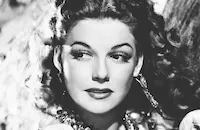
Ann Sheridan

Dennis Morgan

Jack Carson

Alexis Smith
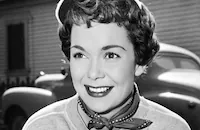
Jane Wyman
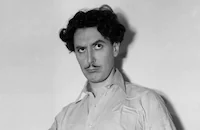
Reginald Gardiner

John Loder

Marjorie Gateson
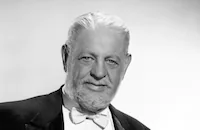
Thurston Hall

John Abbott

Marjorie Hoshelle

Sig Arno

Lynne Baggett
Joan Winfield

Juanita Stark
Bob Hutton
Gertrude Carr
Lottie Williams
Mary Field
Danny Jackson
Otto Hoffman
Frank Coghlan Jr.
Nina Ferova
Fred Howard
Henri Desoto
Hal K. Dawson
Charlotte Treadway
Frances Morris
Fred Essler
Marjorie Henshaw

John Alvin
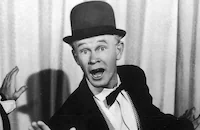
William Benedict
Crew
Milo Anderson
Julius J. Epstein
Philip G. Epstein
Leo F. Forbstein
Benjamin Glazer
Bert Glennon
Anton Grot
Jesse Hibbs
Charles Hoffman
George James Hopkins
Max Steiner
Dolph Thomas
Catherine Turney
Jack L. Warner
David Weisbart
Perc Westmore

Film Details
Technical Specs

Articles
One More Tomorrow
One More Tomorrow was the second cinematic adaptation of Philip Barry's socially conscious 1932 play The Animal Kingdom. The first, filmed in 1932 and titled after the play, had starred Ann Harding, Leslie Howard and Myrna Loy. One More Tomorrow updated the action of the play for modern wartime moviegoers, but watered down some of its politics in favor of appealing to a broader audience.
A fine cast of actors is one of One More Tomorrow's greatest assets. Ann Sheridan and Dennis Morgan give strong performances as the leads, with excellent support from Jack Carson as Tom's loyal butler and Jane Wyman as Christie's assistant and friend.
Producer: Benjamin Glazer
Director: Peter Godfrey
Screenplay: Charles Hoffman, Catherine Turney; Julius J. Epstein, Philip G. Epstein (additional dialogue); Philip Barry (play "The Animal Kingdom")
Cinematography: Bert Glennon
Art Direction: Anton Grot
Music: Max Steiner; Hugo Friedhofer (uncredited)
Film Editing: David Weisbart
Cast: Ann Sheridan (Christie Sage), Dennis Morgan (Thomas Rufus 'Tom' Collier III), Jack Carson (Patrick 'Pat' Regan), Alexis Smith (Cecelia Henry), Jane Wyman (Frankie Connors), Reginald Gardiner (Jim Fisk), John Loder (Owen Arthur), Marjorie Gateson (Aunt Edna Collier), Thurston Hall (Thomas Rufus Collier, II), John Abbott (Joseph Baronova), Marjorie Hoshelle (Illa Baronova), Sig Arno (Poppa Diaduska).
BW-88m.
by Andrea Passafiume

One More Tomorrow
Quotes
Trivia
Filmed in the autumn of 1943, but wasn't released until 1946, allegedly because of Warner Bros.' lack of confidence in its box office potential.
Notes
This film's working title was The Animal Kingdom. Before the onscreen credits begin, the following announcement appears over a shot of the Warner Bros. studios: "1926-1946 Twenty years ago Warner Bros. were the first to make motion pictures talk and sing. This is a twentieth anniversary presentation!"
Hollywood Reporter news items in 1942 note that Warner Bros. purchased an unproduced play entitled One More Tomorrow, written by Charles Hoffman, which was to star Olivia De Havilland and Dennis Morgan, but that project remained unproduced and was unrelated to this film. After rejecting Hoffman's play De Havilland was offered One More Tomorrow, which she rejected, resulting in her fifth suspension from Warner Bros. in three years. For more information on De Havilland's eventual legal suit against Warner Bros., see Devotion (above).
Other Hollywood Reporter news items add the following information about the production: Bette Davis and Paul Henreid were originally slated to star in the picture. Director Peter Godfrey replaced Irving Rapper, who had co-directed the play with Philip Barry, when Rapper was assigned to Rhapsody in Blue after the production delayed due to script difficulties. Only Rapper's party scenes were retained in the final film. A production still from the film indicates that actors Grady Sutton and Charles Shrader were cast as interior decorators, but they were not in the released film. Scenes of a Mexican village were shot on location at the Warner Ranch in Calabasas, CA, but these scenes did not appear in the viewed print. Reginald Gardiner was borrowed from Twentieth Century-Fox for the production. Although this film was completed in 1943, it was not released until 1946. No reason was found for the delay. The Philip Barry play was also the basis for the 1932 RKO film The Animal Kingdom, starring Ann Harding and Leslie Howard (see AFI Catalog of Feature Films, 1931-40; F3.0121).

















